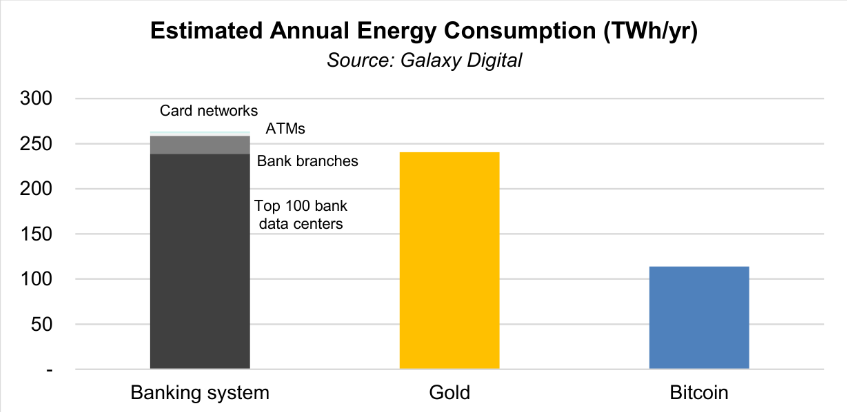Why are cryptocurrencies a more eco-friendly choice than traditional financial systems?
BITCOIN (BTC) ETHEREUM (ETH) MINING PoS (Proof-of-Stake) PoW (Proof-of-Work)21-Apr-2023

TOP posts
As part of Earth Day celebrations, it is common to talk about measures and responsible approaches to the environment. On this important day, we remind the importance of nature and environmental protection for us and for future generations. Currently, there is increasing discussion about the impact of technology and digitalization on the environment.
Myths or reality? Facts about digital currencies and their impact on nature
Today, as the whole world tries to improve its environmental behavior, more and more people are considering how to be environmentally conscious in the field of cryptocurrencies. There is a big debate about whether cryptocurrencies are environmentally friendly or not. In this article, we will look at the arguments for why cryptocurrencies are more eco-friendly than the banking sector or gold mining, and how some cryptocurrencies are already eliminating their carbon footprint.
When comparing cryptocurrencies to the banking sector, it is clear that cryptocurrency production requires less energy than the operation of the banking system. In fact, according to a report published in the journal Nature, the total energy consumption associated with cryptocurrencies is only a fraction of what the banking sector uses. Banks have huge physical rooms required for their operations, while cryptocurrencies require only computational power and hardware.
Another argument for the ecological advantage of cryptocurrencies is the comparison of their operations with gold mining. Gold mining is known for its large carbon footprint because it requires huge amounts of energy and chemicals. On the other hand, cryptocurrencies are mined using renewable energy. This fact may influence many people in their decision to invest in the world of cryptocurrencies.
TIP: Bitcoin is more ECO than gold mining or banks

Source: Galaxy Digital
Renewable energy and cryptocurrencies: A connection for the future?
Similar steps have recently been taken in the case of Bitcoin, where new technological solutions have been developed to reduce its carbon footprint. One example is the "Bitcoin Mining Council," which aims to increase the share of renewable resources in Bitcoin mining and ensure the sustainability of this activity. This step has gained the support of many significant players in the cryptocurrency market who identify with the need to increase responsibility and ensure eco-friendly mining of cryptocurrencies.
An important part of more eco-friendly cryptocurrency ecosystems are so-called "green" cryptocurrencies, which seek to minimize their carbon footprint. One of the most well-known examples is Ethereum, which has already switched to a new transaction validation algorithm (Proof-of-Stake), which is much more environmentally friendly than the older algorithm (Proof-of-Work) used for example, in the case of Bitcoin. Ethereum has thus become one of the first cryptocurrencies to eliminate its carbon footprint and use renewable energy sources.
Ethereum is not the only cryptocurrency trying to improve its environmental footprint. Other projects, such as Cardano and Algorand, are also trying to find ways to use renewable energy for their mining.
How do digital currencies help protect the environment?
In the context of sustainability and ecology, it is also important to mention that cryptocurrencies have the potential to lead to greater financial inclusion, which could help many countries in the world in the fight against poverty and unemployment. Ensuring greater access to financial services can help limit corruption and illegal trade, improving the overall economic situation in many countries.
Cryptocurrencies can thus not only be a more eco-friendly and sustainable alternative to traditional financial services, but also a tool to achieve greater financial inclusion and overall prosperity. As Coinbase CEO Brian Armstrong stated, "We hope that cryptocurrencies can be part of the solution to the global environmental problems we face today."
As awareness of environmental challenges grows, more and more cryptocurrency projects are focusing on how to minimize their impact on the environment. Many of them have pledged to use only renewable energy sources and also to minimize their carbon footprint.
Cryptocurrencies as a tool for responsible investment in ecology and sustainability
In the end, we can say that cryptocurrencies can currently be one of the most eco-friendly ways of conducting financial transactions. Their impact on the environment is constantly improving, and it is important for project teams to continue focusing on how to minimize their negative impact on our planet.




